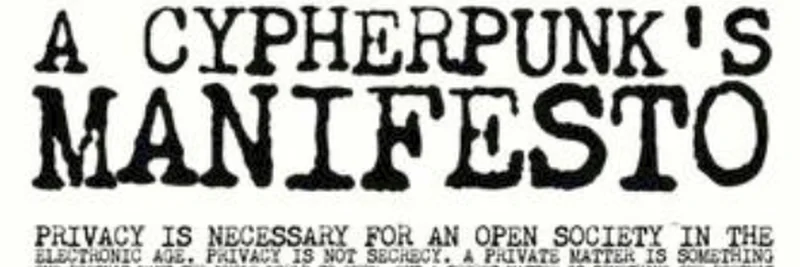In the fast-paced world of crypto, sometimes a simple tweet can remind us of the foundational ideas that started it all. Take this recent post from Yash Parikh (@yashnuff), quoting Mert from Helius.dev (@0xMert_), who urged the community to "return to your roots." Yash responded by sharing the opening line of Eric Hughes' A Cypherpunk's Manifesto: "Privacy is necessary for an open society in the electronic age."
This manifesto, written back in 1993, laid the groundwork for much of what we see in blockchain today. Cypherpunks—activists and technologists advocating for strong cryptography and privacy tools—believed in using tech to protect individual freedoms from surveillance by governments or corporations. It's no coincidence that Bitcoin, the OG cryptocurrency, embodies these ideals with its decentralized, pseudonymous transactions.
But what does this have to do with meme tokens? Well, meme coins like Dogecoin or newer Solana-based sensations thrive on community hype, viral trends, and sometimes anonymous creators. In this ecosystem, privacy isn't just a nice-to-have; it's essential. Think about it: meme token launches often involve pseudonymous devs to avoid regulatory scrutiny or personal risks. Without privacy, the fun, chaotic spirit of memes could be stifled by doxxing, tracking, or overreach.
The quoted image from Mert's tweet defines a cypherpunk as someone pushing for cryptography-driven social and political change. It highlights how the movement influenced Bitcoin and other cryptos, emphasizing decentralization and freedom from centralized authority. In the meme token space, this translates to tools like zero-knowledge proofs (ZK tech) that could enable private trades or anonymous voting in DAOs. Projects on chains like Solana are experimenting with privacy layers to make meme trading more secure without losing the transparency that prevents scams.
Replies to Yash's tweet echo this sentiment. One user called it "timeless and terrifyingly relevant," while another suggested holding privacy-focused coins like ZEC. It's a nod to how privacy protects users in volatile markets where whale watching or front-running can ruin the game for retail traders.
As blockchain practitioners, revisiting these roots helps us build better. Meme tokens aren't just jokes—they're experiments in community governance and value creation. By embracing cypherpunk principles, we ensure the space remains open, innovative, and resistant to censorship. If you're diving into memes, consider how privacy tech can enhance your strategies. Check out the full thread here for more community insights.



